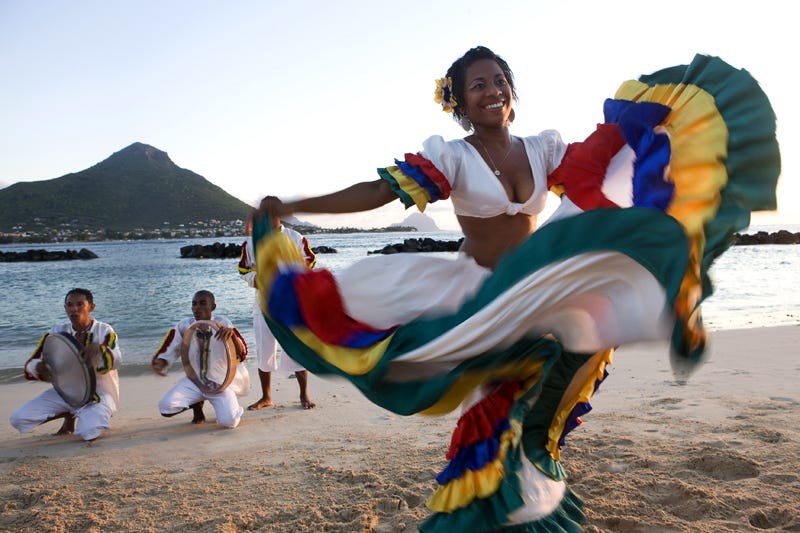EVERY GENRE PROJECT - October 12 - Seggae
Genre of the Day - Seggae 🇲🇺
Album of the Day - Zistwar Revoltan by Kaya (1980)
Today’s genre comes attached to not just one, but two coincidences in my life. Though my friend Kaia who’s visiting and was present to listen to the album of the day may not have been named after Bob Marley’s elemental paean to marijuana “Kaya”—it came by way of a Greek baby name book—today’s artist chose his stage name after the reggae god’s 1978 song. Additionally, we doubly indulged in some tropical yearning, aside from the genre of the day, at a Summer Salt concert purchased at a refreshingly low price point. What does it all mean? Perhaps that all roads lead to Mauritius. Flights from LA stand at a light $1,275 at the moment.
Cheaper yet is simply listening to a Mauritian genre, and seggae provides the most economical and worldly choice to reach the country and its cultural patchwork that resembles no other nation’s. Mauritius lays among emerald-colored waters 700 miles east of Madagascar, a far-flung gem in the Indian Ocean. The island was known to Arab sailors who evidently strayed too far from the region’s busy trade routes once or twice since 900 CE, but wasn’t inhabited by humans—though it was home to the world’s only flourishing dodo population—until colonial times as in recent genre features in the Cayman Islands and Cape Verde. The highly multiethnic country’s population developed amidst the overturn of different European rulers who variously drew from Madagascar, Africa, India, and China for enslaved or indentured labor to work its lucrative sugar plantations.
Just as the French-based Mauritian Creole language fluidly draws from these overlapping heritages to constitute a unique linguistic understanding, the country’s signature séga music drew from traditional African and Malagasy forms with European dance styles in a brisk and aptly distinctive 6/8 time. Despite the country’s high levels of development today, though, for the past century Mauritius has been grappling with the colonial legacies of subjugating the island’s population of African and Malagasy origins; seggae took a genre that already staked these heritages’ importance one step further by connecting it to a wider global message of liberation and fairness.
Given the origin of his stage name, Kaya could’ve run the Bob Marley Fan Club’s Mauritius chapter like the navy, but fortunately he put his fandom to good alchemical use joining the singer’s globally-reverberating reggae to the Mauritian séga context, mostly singing in Mauritian Creole though sonically appealing to Jamaica’s local fanbase. At times, the music is emblematic of its moment at the dawn of the ‘80s, as in the shining guitar riffs and pads brought to isolated shore by twitchy, funkier licks and hard-hitting drums of “Free Man.” The strong guitar and bass and the urgent organ chords drive the inquiries of “Zistwar revoltan,” as he euphorically answers his verses in hopeful responses of freedom in the chorus. The spontaneous communality of “Gran ter” and its open singing and traditional ravanne drums is one of the album’s most striking moments, a firm nod towards how traditions combined with international musical visions of better social futures like reggae can produce joy and uplift.






